Seeking Justice for the Armenian Genocide, One Story at a Time
Funded Projects, Sustained Impact, Alumni, Partner Institutions, Americas, Europe, Multi-national, Documentation & Preservation, Human Rights & Justice
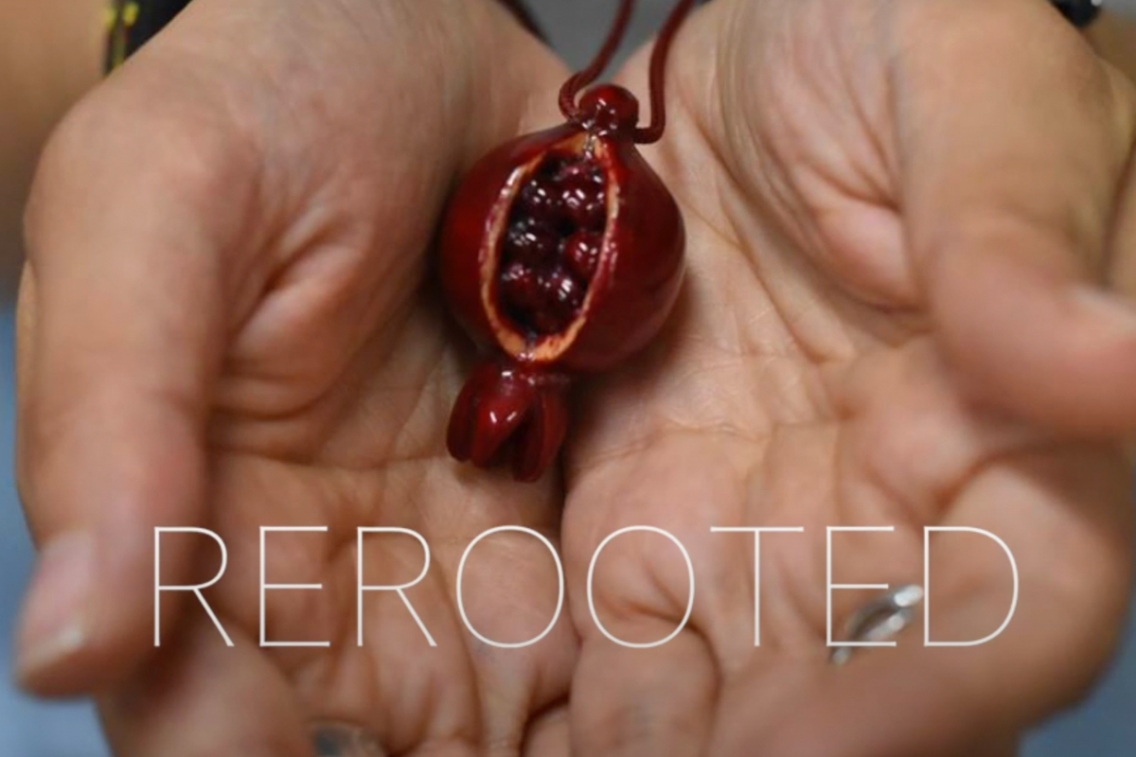
Launched as a Project for Peace in 2017, the Rerooted Archive celebrates five years of documenting stories from Armenians displaced by conflict. Founded and continued by friends Anoush Baghdassarian and Ani Schug, Rerooted has grown into an organization committed to pursuing education, preservation, and justice for Armenians. This is the story of how Rerooted came about, and how they sustained it.
An Origin Story, Armenian Style
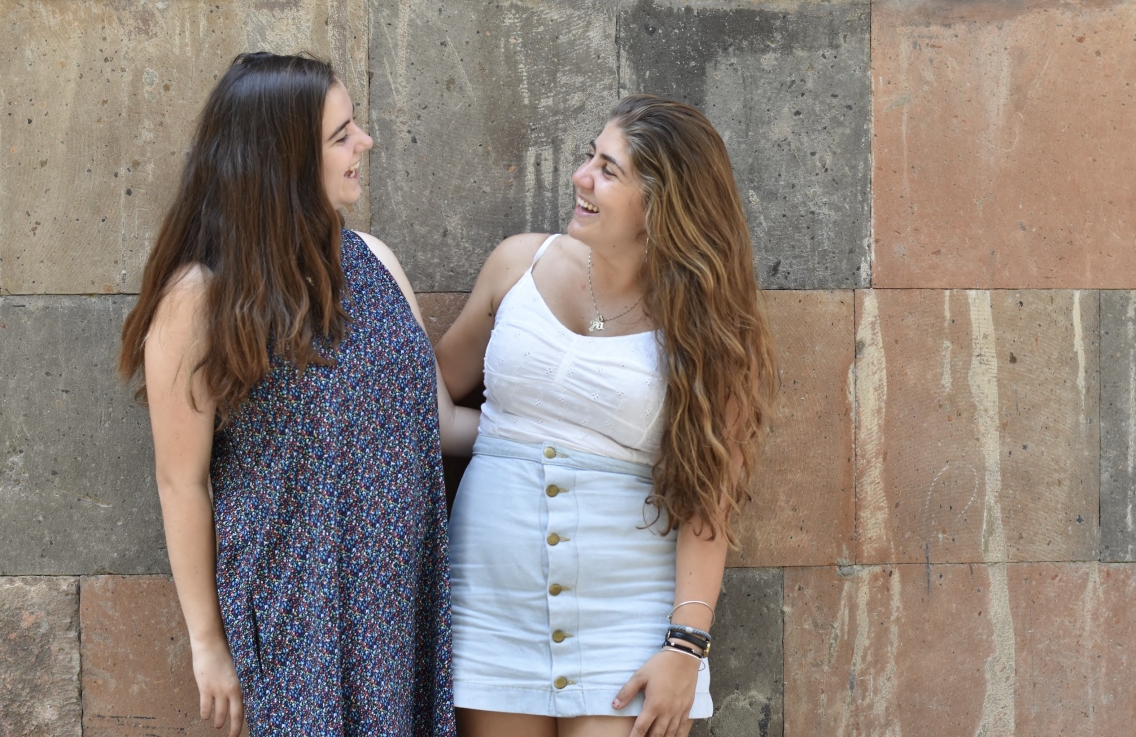
Before Anoush Baghdassarian and Ani Schug created the Rerooted Archive, they had what Ani calls “a perfect Armenian diaspora story.” Both enrolled in the Claremont Colleges—Anoush at Claremont McKenna College and Ani at Pomona College—and bumped into each other at a shared dining hall. “I was wearing a ‘Little Armenia’ t-shirt and then Anoush came up to me and asked ‘Wow, are you Armenian?” says Ani. The two immediately connected, and over the ensuing years worked together in the Armenian Students Association to revive a dormant Armenian community at the colleges. As they neared the end of their college careers, they decided it was time to take that collaboration in a more global direction.
Both young women studied abroad. While Anoush was in Argentina and Ani was in Jordan, they connected with the Armenian communities in their respective countries. When they returned to the U.S. for their senior years, they realized that even a world away they both had experienced connections that inspired them to do more for the Armenian diaspora. “Our motto at Claremont McKenna is ‘learning for the sake of doing,” says Anoush. From the start of her collegiate career, she hoped to find the right avenue to turn that drive into action. She first read about Projects for Peace her freshman year but felt “too rushed” and “young” at the time. That was no longer the case a few years later.
With nearly a full college career under their belts, Ani and Anoush felt it was finally the right time to make a Project for Peace happen. Reflecting on the contemporary circumstances for Syrians-Armenians led the pair to think critically about mounting a peace project that engaged with their shared cultural heritage. Through her internship at Human Rights Watch, Anoush was studying the Syrian refugee crisis and learned about how many Armenians were displaced during the war after fleeing to Syria a century before. “It seemed like 100 years of displacement. The Armenians who survived the genocide and ended up in Syria were now fleeing again because of atrocity,” she says. “War crimes, crimes against humanity…this is what I was studying in my minor at Claremont McKenna, and this is what I hoped to pursue a human rights legal career in.”
Anoush and Ani’s research in the fields of human rights and law brought them to a starting point. “One of the reasons that we don’t have justice for the Armenian genocide is because of the lack of documentation,” says Anoush, “and also the lack of international accountability. Genocide didn’t exist as a term, and neither did many of the atrocity crimes.” That kernel led them to develop a Projects for Peace proposal for summer 2017: they would interview Armenians from Syria and build an oral history of the genocide and the conflict in Syria in hopes of someday using it to support legal initiatives.
On the Ground Uncovering Stories
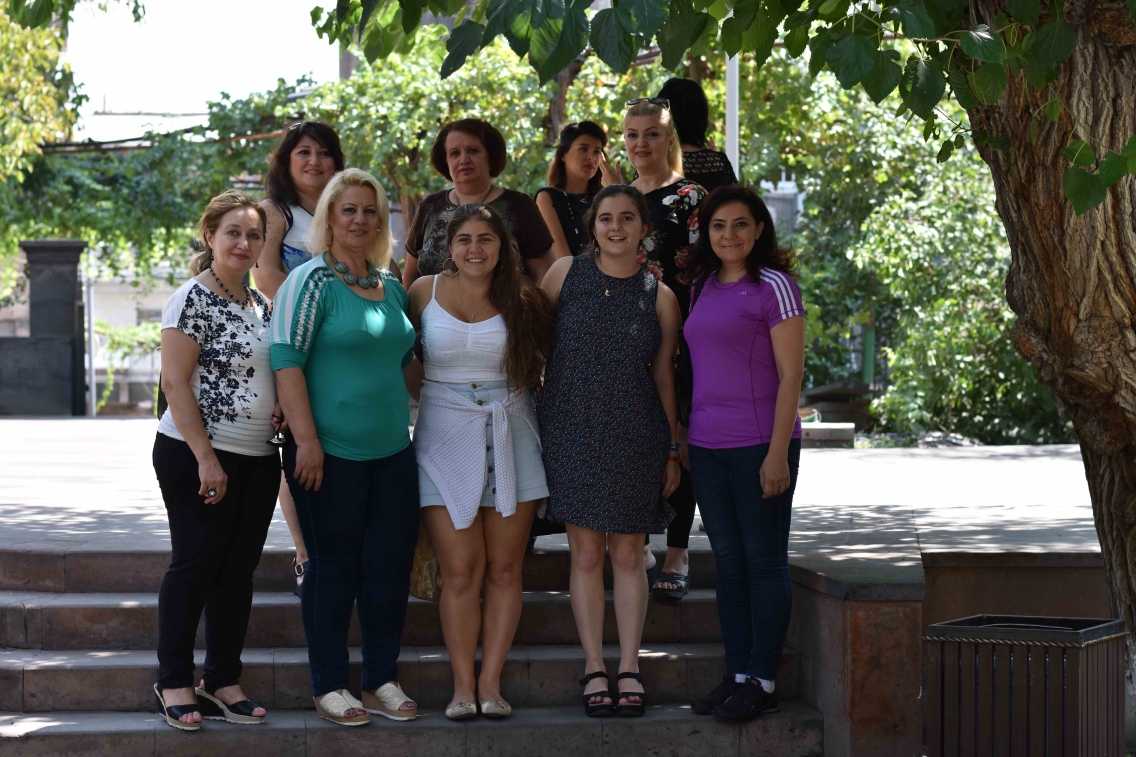
The first hurdle was making contact with potential interviewees in Armenia. Through help from the fellowship offices at their colleges and conversations with their personal Armenian networks, Ani and Anoush established an action plan for finalizing a summer interview schedule. That step was not without its anxieties. In fact, during the first few weeks of preparation, before arriving in Armenia, they could not find any interested interviewees. “That was kind of the moment where I was like, “Oh my God, is this going to work?” says Ani. Thankfully, they ended up having no trouble locating eager subjects once they made it to Armenia.
Once interviews were scheduled, they devoted time to considering how best to approach recording both the history and humanity of their interviewees. Anoush points to “Humans of New York” as an inspiration. “Every quote the interviewer elicited was such a snapshot of a piece of humanity that everybody could relate to,” she says. “You could relate to the feeling that this person was able to capture. And it was moving.” That core is also what motivated Ani to make the connection between the personal and the communal explicit. “My grandparents’ story was never told. There’s this pain of being denied that experience,” she says. “So going in we hoped the act of recording the stories would be helpful for the community.”
Once they began the interviews, the two were amazed by the overwhelming support that the Armenian community showed them. Over eight weeks, the pair conducted 80 interviews, surpassing their initial hope of 50. Friends and family had told them that in Armenia “you can’t do anything in advance, you just have to get there,” says Ani. That came to fruition as Anoush says people “learn to trust you. Gain faith in you.” Of course, it wasn’t without its challenges even as the community opened up. Both Ani and Anoush identify unreliable internet for virtual interviews and the related need to travel to speak to those unable to talk over video chat as major hurdles.
Even so, the two persevered with the help of a burgeoning network of NGOs and personal connections in Armenia that supported their efforts. “It’s beautiful, we have so many different connections here in Armenia and outside with the Syrian Armenian community,” says Anoush. She goes on to note that “the thanks goes to all of them for sharing their story and helping to preserve our collective history.” For Ani and Anoush, this depth of connection to the global Armenian community is the beating heart of their personal passions.
Building out the Rerooted Archive
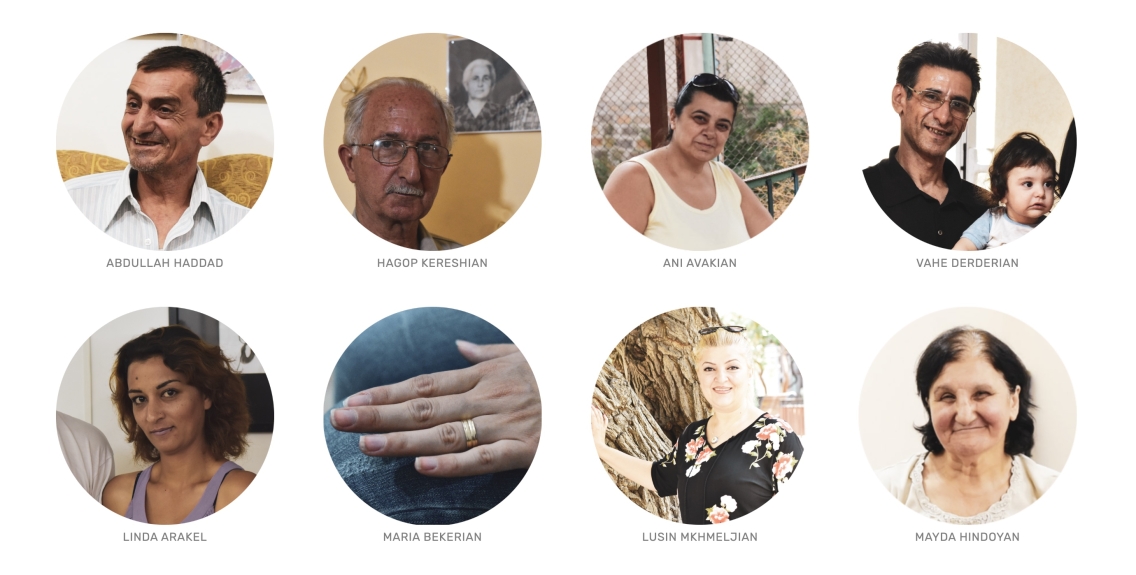
For Ani and Anoush, the overwhelmingly positive response from the Armenian community resulted in a rethinking of how to turn their reporting into an archive. In the planning stages, they mapped out the summer with a specific workflow in mind. “We were going to spend every day doing these interviews, and then go home and transcribe them at night,” says Ani. However, with dozens more multi-hour interviews than expected, and with some even lasting well into the wee hours of the morning, that blueprint quickly dissolved. “We couldn’t interview from 9:00 AM to midnight and then go home and transcribe,” says Anoush. “We were just so out of touch with reality,” adds Ani with a laugh.
As a result, the two decided partway through the summer that they would focus entirely on gathering material during the eight weeks, and handle the translation and transcription once they got back to the States. “I think we thought ‘Oh, it takes just as long as an interview to transcribe it,” says Ani. “No, it takes 10 times [as long] to transcribe something.” That workload initially fell entirely on Ani because she speaks Western Armenian fluently. There was no program to help automate the translation or transcription processes. “I always say that all the interviews would still be on the hard drive if it wasn’t for Ani,” says Anoush.
Ani and Anoush agree that the decision to delay translation and transcription ended up being a positive development, despite their worry at the time. “A positive that came out of the unfinished work is that we had such a push to keep working to fully preserve the community’s stories,” says Ani. “So I think it naturally helped us consider the future: How are we going to finish transcribing these? How are we going to get them on a website? How are we going to build a website?” Those questions fueled Ani and Anoush to create plans which would allow them to deliver an initial project by the reporting deadline and recognize there was more to come.
In the immediate future, that meant concluding the Projects for Peace grant and building out the Rerooted website with the first batch of translated and transcribed interviews. They accomplished that goal, and while working away on the rest of the material, looked ahead to the following summer. Anoush secured an internship at the Human Rights Defenders office which took her to Armenia. “Every time I’d meet a Syrian Armenian out somewhere, I’d get excited and say, ‘I have this project. Do you want to maybe contribute your story?’ And everybody wanted to,” she says. That process added over 30 new interviews, proving to Ani and Anoush that Rerooted was only just getting started.
Sustaining the Work and Growing
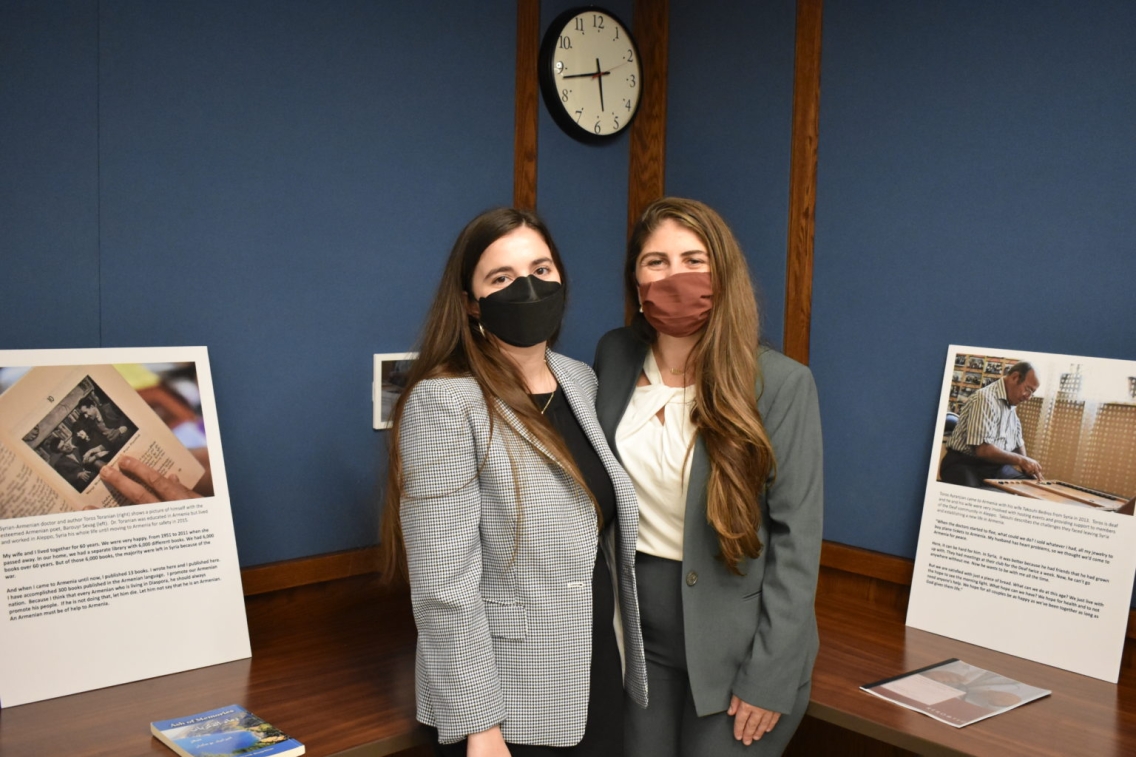
In the five years since they began working on Rerooted, Ani and Anoush have transformed their Project for Peace into an established organization that continues its important mission. The work has inspired their continued education, professional careers, and partnership with each other. The cornerstone has remained interviews with Armenians around the world, something that has taken the team to places as varied as France, Lebanon, and, virtually, Syria. An unexpected outcome is that Ani’s work (now leading a team of transcribers and translators) has led to a point where “we have enough transcribed testimonies to play a significant role in linguistic research to preserve Western Armenian,” says Anoush. That work will also finalize a widely accessible translation program to aid future work, and play a part in preserving the endangered language.
That tool is a part of the team’s three-point action plan for Rerooted: preservation, education, and justice. Fighting the extinction of Western Armenian supports preservation, just as the core task of conducting and sharing interviews does. Ani defines the overall vision for preservation as “making a snapshot of this really important, unique diaspora community.” In turn, that “snapshot” feeds into education, which the two imagine can apply to both higher education and work with younger students. In fact, they have already added lesson plans to the website for teachers hoping to discuss the Armenian diaspora and genocide.
The third point, justice, was their original inspiration and remains a driving force behind Rerooted. All of the preservation and education activities feed into their joint hope to secure justice on an international stage. Both have pursued careers in the legal field with specializations in immigration and human rights. While they see the biggest legal work as “down the line,” that has not stopped them from taking their first major steps. “We’ve written reports to the United Nations,” says Anoush. “We said we wanted the harm done to [the Syrian-Armenian community members] included in the justice efforts, so we took their testimonies and submitted two reports.”
Five years of progress have been possible because of Ani and Anoush’s continued efforts, as well as a groundswell of volunteers and interns that have contacted them about wanting to support this work. “Last summer we had a little more time on our hands because of COVID, so we announced an internship program,” says Anoush. They ended up with over 10 interns, a mix of law and non-law students. That group led directly to a number of reports and projects, including the development of a “Syrian Accountability Litigation Guide” that will go live on their website soon for anyone to use.
Even though the two didn’t advertise for help this year, excited students have reached out to help, which Ani calls “humbling and inspiring to see.” Rerooted has been so meaningful to us,” says Ani. She goes on to say that the community of colleagues around them is more than she or Anoush “dreamed of,” underscoring the power and importance of the work at hand. In honor of that work and everyone who has contributed to it since 2017, Ani and Anoush are working on a special five-year anniversary report that they will publish soon. In addition to looking back, the report also shares a vision for Rerooted’s future. As Anoush puts it, “every story gets us closer to justice, and Ani and I will keep going until we reach that. And then some.”

